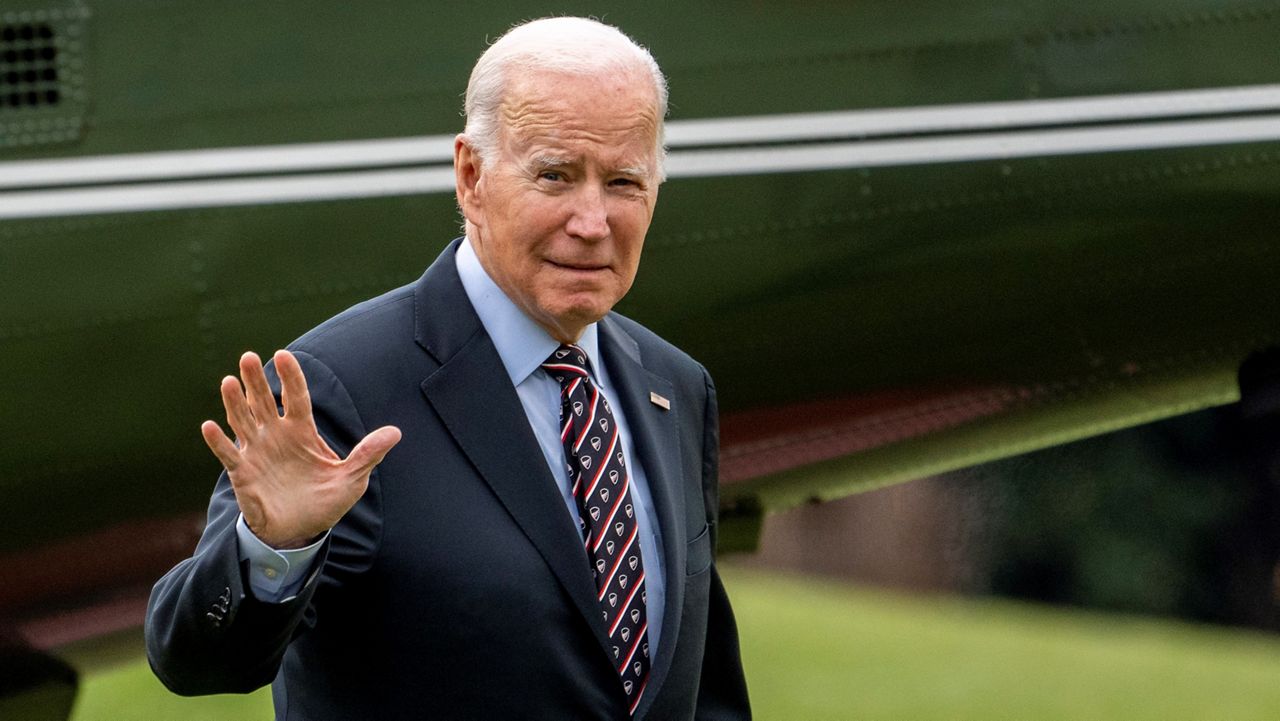President Joe Biden on Friday granted full pardons to six individuals who “have served their sentences and have demonstrated a commitment to improving their communities and the lives of those around them,” a White House spokesperson said, wrapping up his second year in office with the flurry of actions on the penultimate day of the year.
The six individuals are Gary Parks Davis of Yuma, Arizona; Edward Lincoln De Coito III of Dublin, California; Vincente Ray Flores of Winters, California; Beverly Ann Ibn-Tamas of Columbus, Ohio; Charlie Byrnes Jackson of Swansea, South Carolina and John Dix Nock III of St. Augustine, Florida.
A White House official noted in a statement that President Biden believes “America is a nation of second chances,” adding in part: “The President remains committed to providing second chances to individuals who have demonstrated their rehabilitation – something that elected officials on both sides of the aisle, faith leaders, civil rights advocates, and law enforcement leaders agree our criminal justice system should offer.”
The eldest of those pardoned on Friday by the president is Beverly Ann Ibn-Tamas, an 80-year-old woman who was convicted of the second-degree murder of her husband in the 1970s and was sentenced to a term of one to five years in prison. The White House noted that, at the time of the killing, 33-year-old pregnant Ibn-Tamas’ husband “beat her, verbally abused her, and threatened her,” adding that “her husband had physically assaulted her and threatened her in the moments before she shot him.”
In the years since her release from incarceration, Ibn-Tamas has worked at an Ohio-based healthcare organization. Her case has since become the subject of numerous academic studies regarding battered woman syndrome, a defense used by women to argue “that their only means of escaping life-threatening abuse is to kill their husbands,” per the Justice Department.
Charlie Byrnes Jackson, 77, pleaded guilty to one count of possession and sale of distilled spirits without tax stamps when he was just 18. Because of his conviction in the federal offense, Jackson was unable to join the U.S. Marine Corps, the White House noted, saying he completed his five-year probation term in 1969.
“Mr. Jackson has been an active member of his church since 1987, and he has helped many community members in need and used his carpentry skills to maintain and renovate the church buildings,” the White House continued.
John Dix Nock III, 72, pleaded guilty to one count of renting or making a place for the purpose of manufacturing marijuana plants – though Nock himself did not cultivate marijuana, nor did he play any role in the “grow-house conspiracy,” per the White House – and was sentenced to six months’ community confinement followed by three years of supervised released in the 1990s.
The White House noted that Nock completed all the terms of his plea, including paying the government the value of the home he rented his brother, by 2000, and now “mentors young contractors through a professional networking group, and since 1999, he has helped to organize an annual fishing tournament to benefit abused young men.”
Gary Parks Davis, 66, pleaded guilty to using a public telephone to “facilitate an unlawful cocaine transaction” at just 22, and went on to serve his six-month sentence on nights and weekends. Davis completed his probation in 1981.
“After his offense, Mr. Davis earned a bachelor’s degree and worked steadily, including owning his own landscaping business and managing construction projects,” the White House wrote in part. “He has also been engaged with his community over the past decades, serving as the president and treasurer for the local high school’s booster club, even after his children graduated, and performing civic works and fundraising as a member of the local rotary club and chamber of commerce.”
Edward Lincoln De Coito III, 50, pleaded guilty to participating in a marijuana trafficking conspiracy when he was 23, though his involvement was limited to acting as a courier on several occasions. He was released from custody in December 2000 and, for nearly 15 years after his release, “worked as a skilled electrician […] and then embarked on a second career as a pilot,” the White House noted.
De Coito III had previously served in the U.S. Army and the Army Reserves and received numerous awards for his service.
The youngest individual to receive a pardon on Friday was Vincente Ray Flores, 37, who “consumed ecstasy and alcohol while serving in the military" when he was approximately 19, the White House said. Flores was sentenced to four months’ confinement, a forfeiture of $700 in pay per month for a period of four months, and a reduction in rank.
Flores also enrolled in a rehabilitation program that “provides selected enlisted officers with a chance to return to duty after therapy and education,” and he currently remains on active duty. Flores has been awarded a number of honors during his time in the military, and the White House said his “conduct and efficiency ratings have been outstanding.”
Friday’s action marks the third time this year President Joe Biden has used his clemency powers. Biden in April pardoned three individuals, two for drug offenses and one for fraud and obstruction of justice; he also pardoned thousands of individuals convicted of simple marijuana possession in October. Biden has also commuted the sentence of around 80 individuals during his time in office.



